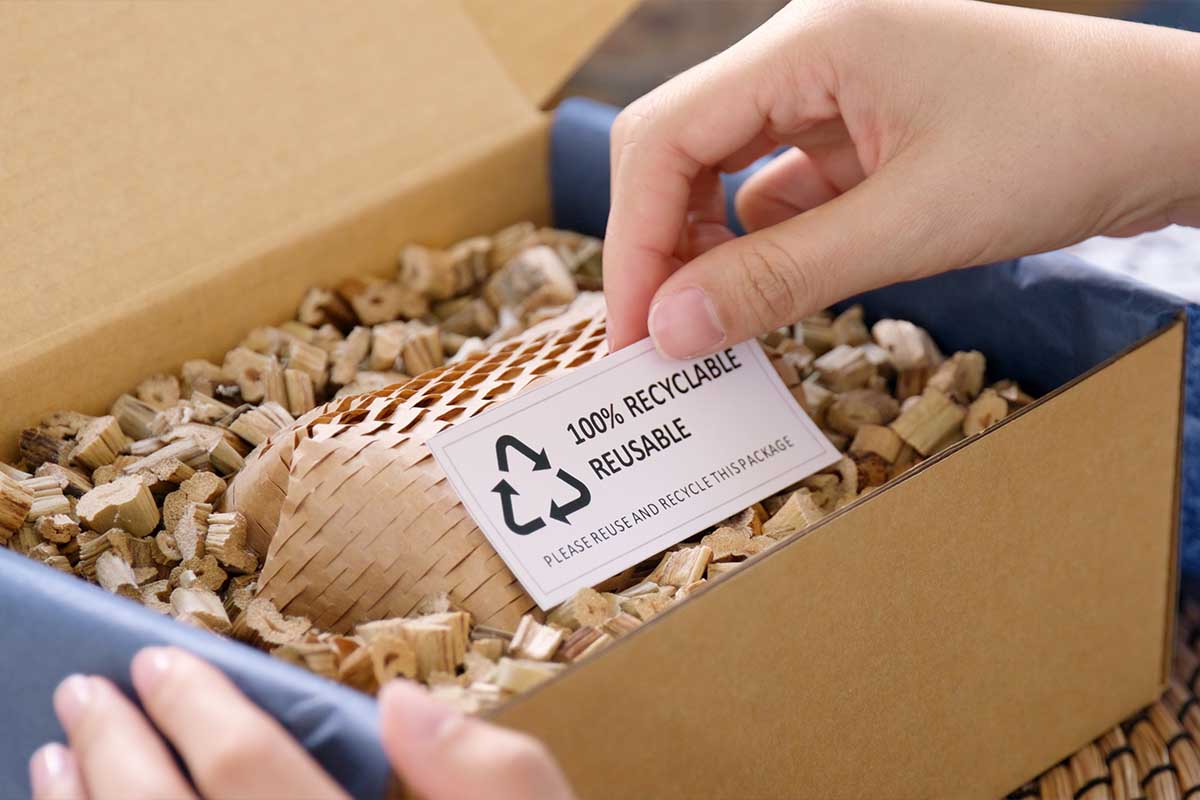Advertisement
The Three Rs: Reduce, Reuse and Recycle
When it comes to product packaging, consumers often consider the end result whether it can be reused or recycled. This, however, is only one part of responsible consumerism. According to the Industry Council for Packaging and the Environment (INCPEN), a non-profit British organization, the focus shouldn’t be on “waste management” (the end result) but on … Continued

When it comes to product packaging, consumers often consider the end result whether it can be reused or recycled. This, however, is only one part of responsible consumerism.
According to the Industry Council for Packaging and the Environment (INCPEN), a non-profit British organization, the focus shouldn’t be on “waste management” (the end result) but on “waste minimization.” This means considering all stages of a product’s lifecycle manufacturing, distribution and recycling/disposal in order to minimize the waste of raw materials and the depletion of fossil fuels, which are non-renewable energy resources and which, in any industrial process, contribute to global warming.
There are many factors in this equation. Consider, for example, plastic versus glass. Plastic is made from oil, a fossil fuel, while glass is made from sand. Glass is more durable than plastic but is also much heavier, so more energy is used in transporting it. Glass requires considerably more energy in the manufacturing and recycling stages as well. Environmentally, which is the better choice? Well, provided that the glass container will be reused, it’s probably the better choice; for one-time use, plastic is better.
Styrofoam, which is actually a type of plastic, is a non-recyclable packaging material. It can be incinerated in the few waste-to-energy conversion facilities that exist, but generally it ends up in landfills.
Aluminum/metal packaging is likely the most harmful to the environment. Although it can be recycled, the manufacturing process uses large amounts of raw materials and a great deal of energy is required at all stages of its lifecycle.
Paper is made from a renewable resource, wood more specifically, pulp. As a packaging material, paper is light and can be transported compactly, which means low energy expenditure. Paper is also the most easily and efficiently recycled of all packaging materials. However, forest management is a critical issue and the pulp and paper industry is one of the largest environmental polluters on the planet.
So, taking all of this into account, how can you practice responsible consumerism? The following tips should help:
- Avoid packaging. For example, use rechargeable batteries (there are solar rechargers), make your own salads instead of buying prepackaged ones, and buy in bulk, using refillable containers. It’ll be easier on your wallet as well as the environment, since the cost of packaging is part of a product’s price.
- Avoid products that are advertised as “disposable” (cameras, diapers, razors, paper plates). They can’t be reused and are difficult often impossible to recycle.
- Buy refills. They require less and lower quality packaging than the container you refill.
- Buy items in particular, paper products such as envelopes, toilet paper, napkins that bear logos or phrases indicating that they have been made from recycled material.
- Reuse Styrofoam “peanuts” for mailing/storing fragile items. Check if the distributor/manufacturer of your new TV or computer will reuse the cut Styrofoam pieces.
- Recycle, but keep in mind that true waste minimization means keeping your recycling to a minimum. Reducing and reusing are far more important.
- Remember that information comes packaged, too. Consider reading or subscribing to online versions of newspapers and magazines. They don’t use raw materials and they won’t end up in your recycling bin.




